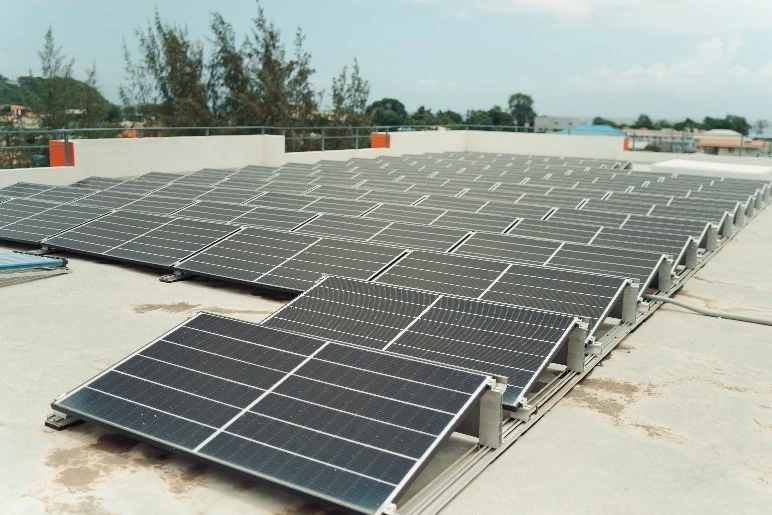Projects
Supporting the implementation of NDCs in the Caribbean – transforming the transport and energy sectors towards a low-carbon and climate-resilient future (NDC-TEC)
Project Information
Approval Date: March 14, 2022
Starting Date: October 2022
Ending Date: September 2027
Executing Entity: Deutsche Gesellschaft für Internationale Zusammenarbeit (GIZ), University of The West Indies (UWI), Caribbean Development Bank (CDB), Caribbean Centre for Renewable Energy and Energy Efficiency (CCREEE), Climate Analytics (CA)
Funding Agency: German Federal Ministry for Economic Affairs and Climate Action (BMWK) via the International Climate Initiative (IKI)
Total Funding Amount: 19,510,000 € (For Implementation) + 489,489.00 € (Project Preparation)
Project Details
The project is supporting Caribbean countries at implementing paradigm shifting actions and increasing the ambition of their NDCs. Six countries shall receive tailor-made technical assistance at implementing their NDCs and developing funding strategies for climate-friendly investments. The project supports ministries at aligning sectoral strategies with their NDCs and implementing MRV systems that feed back into increasing ambition for future NDC cycles. Three “transformation flagships” in the priority sectors energy and transport, which have been selected during the preparation phase, form the core of the project. They shall provide evidence for paradigm shift potentials, leverage funding for profound sectoral transformation and work hand-in-hand with the private sector. In the end, the project shall contribute to significant GHG emission reductions and promote climate resilience.
Context
Caribbean countries are disproportionately dependent on fossil fuel imports for energy and transport. At the same time, they are at particular risk from climate change. Price rises in the global oil market also have a considerable impact on the local economy.
If these countries generate more electricity from renewable sources and make electric mobility a greater priority, they can reduce economic risks, decrease their dependence on crude oil, and contribute to climate action.
To date, however, very few Caribbean countries have included measures relating to the transport sector in their Nationally Determined Contributions (NDCs). Institutions are not yet capable of transforming the energy industry and the transport system. Nonetheless, conditions are favourable for change: high oil prices are making the transition more economically attractive, and the short travel distances in the smaller countries are particularly suited to electric mobility.
Objective
Caribbean countries set themselves ambitious climate targets and work towards a transition in the transport sector which is based on electric mobility and renewable energy.
Approach
The project operates in several Caribbean countries and is implementing the following measures there:
- It supports a revision of the Nationally Determined Contributions and advises decision-makers on how a paradigm shift can be achieved in the transport and energy sector.
- It demonstrates the benefits of electric mobility in pilot schemes (electric buses, cars and boats) in Saint Lucia, Jamaica and Guyana. At the same time, it facilitates access to investment in electric mobility.
- It offers training within the relevant organisations, such as ministries. It also promotes vocational education and training to prepare skilled workers for the transition in the transport sector.
The project works with the following partners: Climate Analytics Inc., the Caribbean Development Bank (CDB), the Caribbean Centre for Renewable Energy and Energy Efficiency (CCREEE), and the University of the West Indies (UWI).
Contact Info
Ina de Visser
Head of Programme
Supporting the implementation of NDCs in the Caribbean – transforming the transport and energy sectors towards a low-carbon and climate-resilient future (NDC-TEC)
St. Lucia
T: +1 758 716 1777
I: www.giz.de

